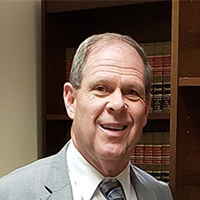Lynchburg Criminal Lawyer, Virginia
Sponsored Law Firm
-
 x
x

Click For More Info:
-
Tillotson & Martin, LLP
DWI/DUI Defense throughout the Entire Commonwealth of Virginia » view mapCriminal Defense Virginia’s Premier DWI/DUI Defense Firm
Michael C. Tillotson is the one to choose when it comes to DWI/DUI defense in Virginia.
800-878-1431
Mark Joseph Peake
✓ VERIFIEDAccident & Injury, Criminal, Traffic, Lawsuit & Dispute, Personal Injury
Mark Peake has been practicing law in the areas of personal injury, insurance defense, civil litigation, products liability, and criminal defense sinc... (more)
Sidney H. Kirstein
✓ VERIFIEDAccident & Injury, Divorce & Family Law, Criminal, Real Estate, Business
I first fell in love with the idea of becoming an attorney while watching fictional defense attorney Perry Mason on TV. Played by Raymond Burr, that c... (more)
 Michael Tillotson Newport News, VA
Michael Tillotson Newport News, VA AboutTillotson & Martin, LLP
AboutTillotson & Martin, LLP Practice AreasExpertise
Practice AreasExpertise


